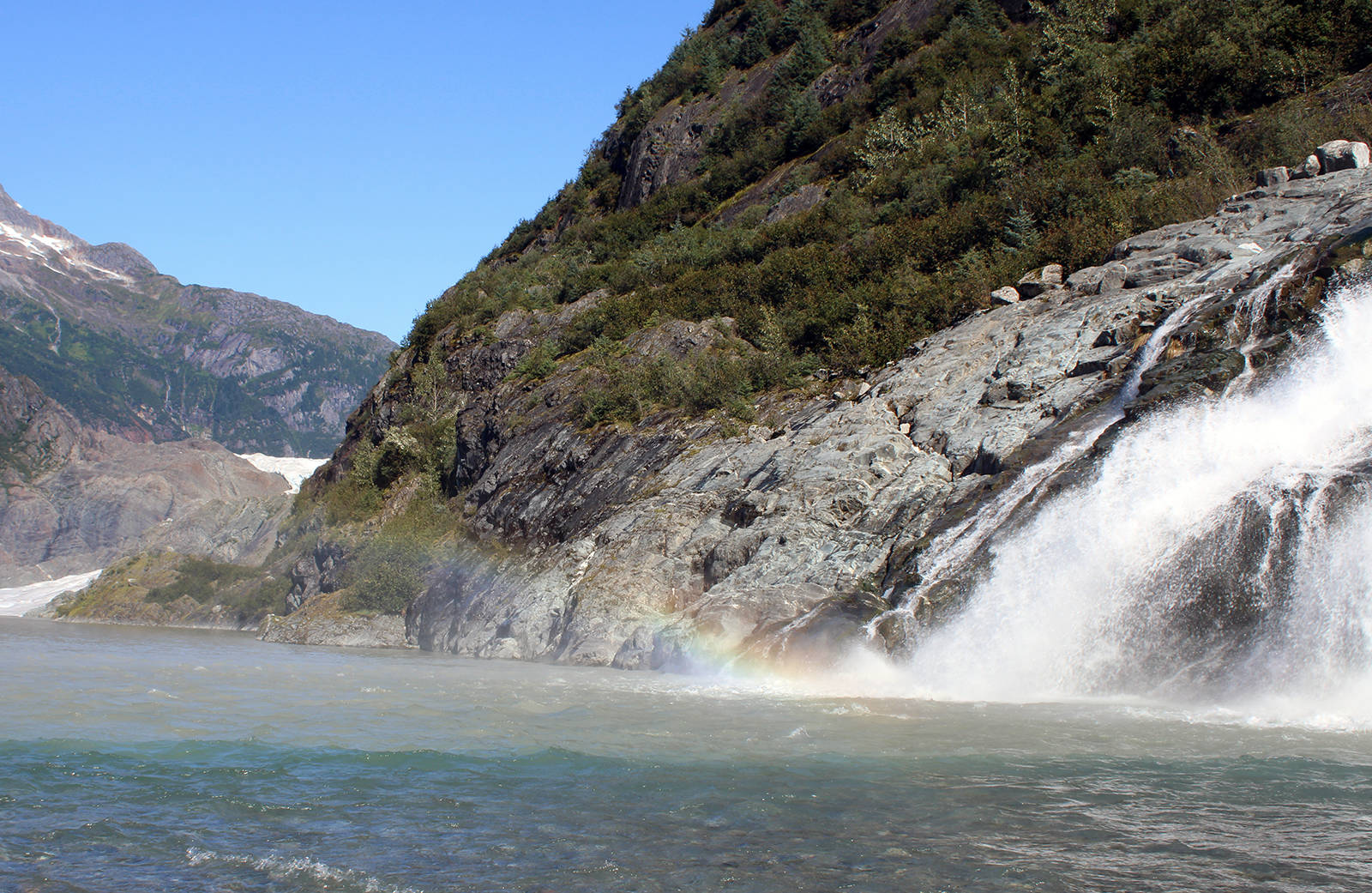By Rich Moniak
Seven consecutive days of September sunshine was a marvelous way to say farewell to the summer of 2020. It was one of the rainiest on record. But that gloom was surpassed by how the pandemic disrupted everything we imagined as normal. And unfortunately, it’s looking to stay with us through the fall and winter.
At some point in the future though, the pandemic summer will become a page of the past. And although it’s unlikely to be viewed with a sense of nostalgia, that itself has offered comfort to many during the past six months.
Psychologists, historians and modern philosophers describe several different forms of nostalgia. The kind I’m thinking about is the sentimental attachment to uniquely personal memories, accompanied by an acceptance there’s no possibility or reason to relive them.
My trip down memory lane this summer was triggered during solo bike rides to the Mendenhall Glacier Visitor Center and on Kaxdigoowu Héen Dei, the paved trail between the Back Loop and Brotherhood Bridge.
Unlike past summers, biking 15 to 20 miles became an almost daily routine. It was an indirect response to the pandemic. I had gotten used to not driving my car except to pick up groceries once every seven to 10 days. As things opened back up, I made a conscious decision to avoid driving unless absolutely necessary.
Initially, I thought the vague sense of familiarity was related to the early summer of 2004. That was the last time I often rode along either route. But the memories that really wanted my attention were from a decade further in the past. And the key to nostalgia’s door were the families biking together.
I observed many parents walking alongside a young child learning to ride with training wheels. Others warning a 7- to 10-year-old to watch out for bikers or pedestrians. Or forming a buffer between their children and passing cars while pedaling on the outbound shoulder from the glacier visitor. And in pursuit of independence, many older kids racing through the forest and leaving their parents and younger siblings far behind.
In the early to mid-1990s, I was the parent in every one of those scenes. The glacier was our favorite destination. We spent hours there some evenings. Like many children I watched this summer, mine enjoyed climbing the glacially smoothed rock slopes up to the visitor center or down to the water at Photo Point. And hiking to Nugget Falls.
Obviously, nostalgia ripens with age. It takes years to build a thick catalogue of cherished memories. Though tucked between many others, none of those stirred to life this summer were ever lost. Their lasting power comes from the loving bonds my children and I shared.
But the way in which they normally make themselves known, and the time they hold my attention, is like Dan Fogelberg poetically described in his song titled “In the Passage.”
“The places dash and the faces dart like fishes in a dream.” And when we’re busily engaged in everyday life, they quickly return to “Hiding ‘neath the murky banks of long forgotten streams.”
The pandemic not only disrupted summer routines. It suspended the ability to confidently plan for the weeks and months ahead. It was as if the steady advance of time stalled long enough for those fleeting images to catch up and regain their rightful titles to chapters of my personal history.
I know there’s no going back to those days. And with my children all living between 700 and 2,000 miles from Juneau, there will be few if any new memories of sharing time together in the places of their youth.
The distance coupled with the pandemic also evokes a question in Alan Parsons’ song titled “Time.”
“Who knows when we shall meet again. If ever.” Because “time keeps flowing live a river to the sea,” where the “tide waits for me.”
An actuarial insurance professional looking at life expectancies would say there’s still a lot of river between me and the tide. If I’m fortunate, it’ll gently meander as it draws near and allow me to deeply celebrate the wonderful faces and places of my past.
For the time being though, I’ve bookmarked a lot of nostalgic remembrances as an unexpected blessing from this summer of uncertainty.
• Rich Moniak is a Juneau resident and retired civil engineer with more than 25 years of experience working in the public sector. Columns, My Turns and Letters to the Editor represent the view of the author, not the view of the Juneau Empire. Have something to say? Here’s how to submit a letter to the editor or My Turn.

